Are you wondering what is so special about Da Nang Museum that attracts so many tourists every day? This is where thousands of valuable artifacts are kept, reflecting the history, culture and life of the people of the Central region through many periods. Not only is it a meaningful tourist destination, the museum also offers a unique discovery experience, helping you better understand the development journey of this beautiful coastal city.
1. Introduction to Da Nang Museum
1.1 Where is Da Nang Museum?
- Address: 31 Tran Phu, Hai Chau, Da Nang
Da Nang Museum is considered a "memory warehouse" that preserves historical marks and cultural beauty typical of the land along the Han River. Coming here, visitors will have the opportunity to go back in time, discover heroic stories and learn about the fascinating local identity. Located at 24 Tran Phu, right in the center of Hai Chau district, the museum is located in the Dien Hai citadel campus. The project stands out with its impressive architecture and spacious exhibition space, offering a rich sightseeing experience. With its convenient location and unique cultural values, Da Nang Museum is sure to be an attractive destination that cannot be missed during your trip.
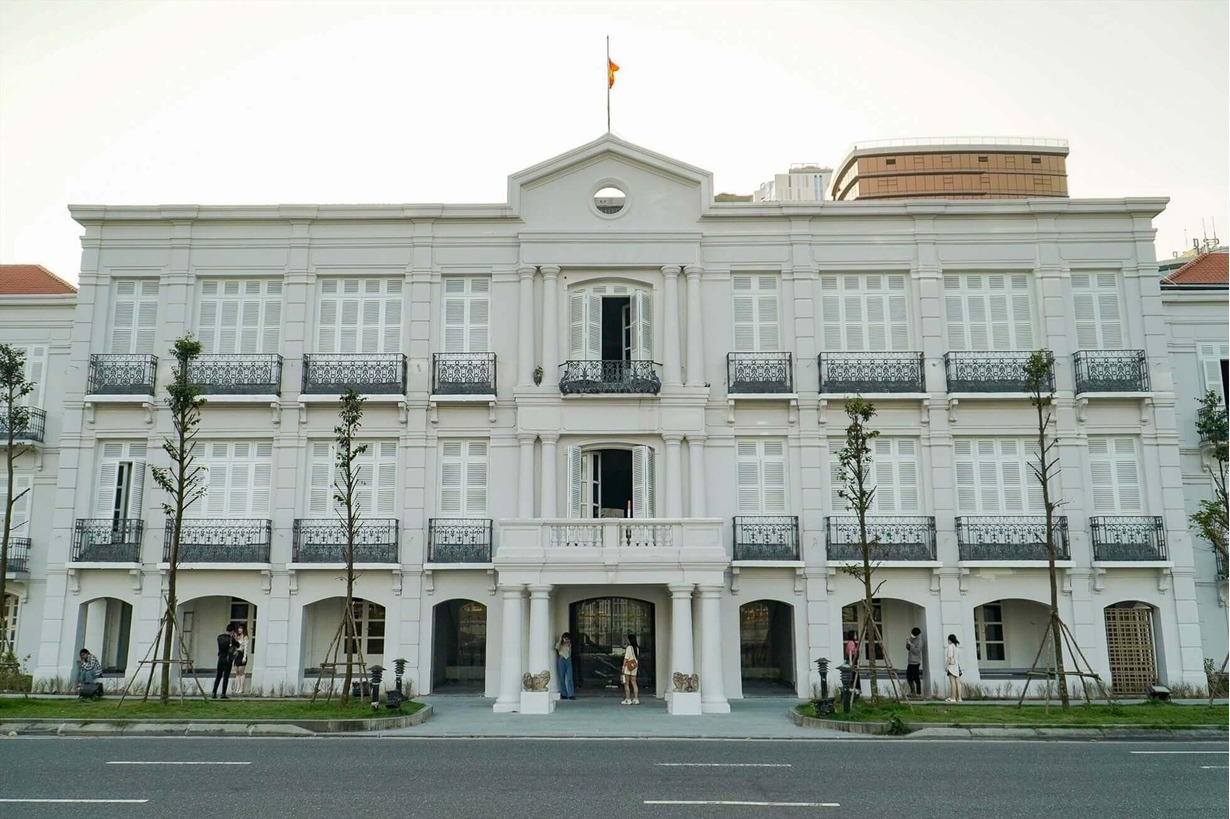
1.2 History of the formation of Da Nang Museum
Da Nang Museum was established in 1989 and officially opened in 2011 at a new location in the Dien Hai citadel. This event marked a major turning point, helping the museum not only expand its display scale but also improve the quality of experience for visitors. Currently, this place preserves more than 2,500 valuable artifacts, truly reflecting the folk cultural life, history of formation and heroic resistance wars of the people of Da Nang. Not only is it a place for students to study and research, the museum has also become a unique cultural highlight, contributing to enriching the journey to explore this beautiful coastal city.
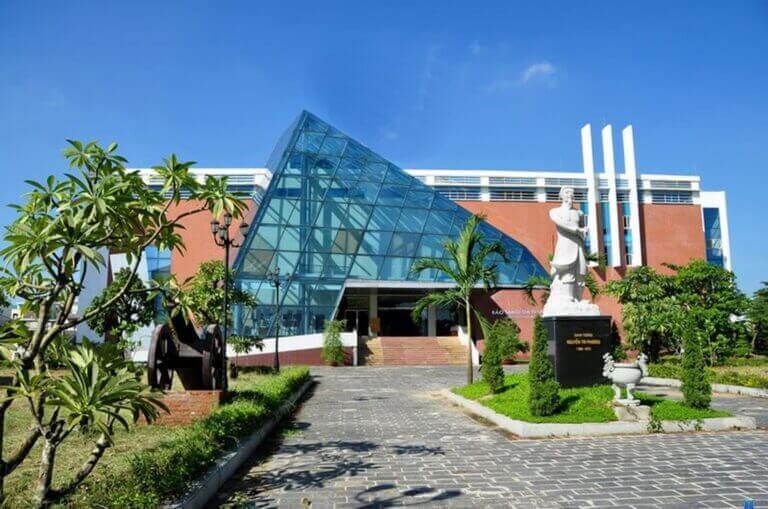
2. Opening Hours of Da Nang Museum
To fully experience and not miss the opportunity to explore the heritage treasures at Da Nang Museum, you should clearly understand the operating hours. Currently, the museum is open to visitors: From Tuesday to Sunday every week (except Friday afternoons for periodic cleaning).
- Morning: 8:00-11:30 (stop receiving visitors after 11:00)
- Afternoon: 14:00-17:00 (stop receiving visitors after 16:30)
- Reception gate: No. 31 Tran Phu, Da Nang city
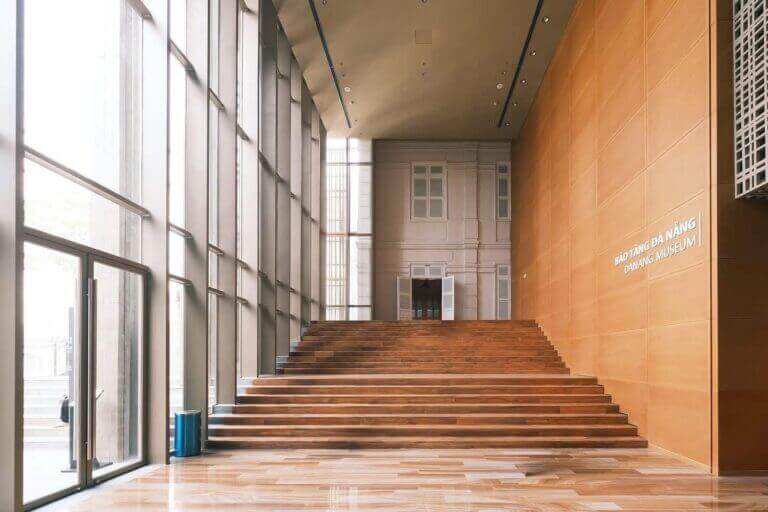
3. Da Nang Museum Ticket Price 2025
From July 3, 2025, Da Nang Museum has applied new entrance fees as follows: Ticket price for Vietnamese and foreigners: 50,000 VND/person/time. Ticket price for permanent residents in Da Nang and students: 20,000 VND/person/time. In addition, some groups will be exempt from ticket fees, including: Children under 16 years old. Elderly people (Vietnamese citizens aged 60 and over). People with disabilities. Other cases eligible for preferential policies according to regulations.
4. What is special about Da Nang Museum that attracts so many tourists?
4.1 Floor 1 - Journey of Da Nang's history from prehistoric to modern
On the first floor of the Da Nang Museum, visitors will admire the exhibition space that recreates the formation and development process of the city, from prehistoric, early historical to modern times. This place preserves many artifacts, images of natural conditions, geology - minerals, rare antique collections, fishermen's lives, port activities, Da Nang urban area before 1975 as well as the period of renovation and integration. The highlight of this exhibition area is the artifacts that vividly simulate traditional agriculture and famous craft villages such as: making Tuy Loan rice paper, Nam O fish sauce, Non Nuoc stone carving...
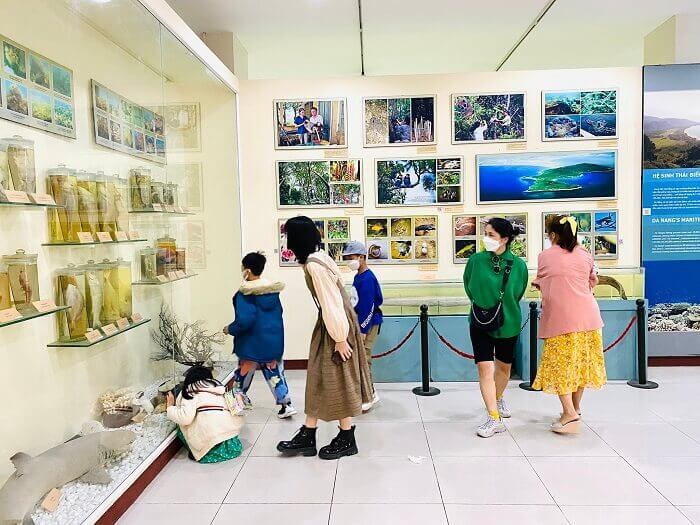
4.2 Floor 2 – Historical imprints of the two resistance wars against France and the US
When stepping onto the second floor of the Da Nang Museum, visitors will relive the heroic atmosphere of the nation in the two resistance wars against French colonialism and American imperialism. This is a space displaying many precious images, artifacts and documents, authentically recreating the resilient and indomitable spirit of our army and people in the struggle for independence. Documentary photos record moments of daily life, fighting, and revolutionary movements boiling everywhere. Artifacts associated with the battlefield such as rifles, grenades, bicycles, military pots, army uniforms, etc.
In addition, handwritten letters, diaries, leaflets or combat orders help viewers feel the ideals, beliefs and indomitable spirit of the previous generation. In addition, the exhibition space also recreates images of bomb-damaged locations, revolutionary bases, secret tunnels, etc.
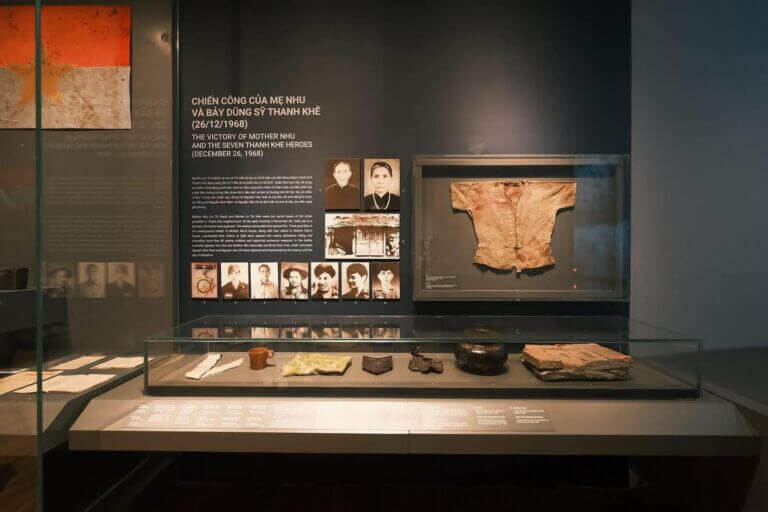
4.3 Floor 3 - Cultural Colors of Central Ethnic Groups
The third floor of the Da Nang Museum opens up a diverse cultural space, honoring the unique identities of Central ethnic communities such as the Kinh, Co Tu, Xo Dang, etc. This place displays a rich variety of artifacts and images, helping visitors clearly feel the cultural soul preserved and passed down through many generations. The colorful traditional costumes, sophisticated handcrafted patterns and typical jewelry express the aesthetic taste and cultural concepts of each ethnic group. Not only that, folk musical instruments such as the T'rung, gongs, drums, etc. have contributed to creating vibrant sounds in community festivals. In addition, traditional agricultural and handicraft production items are also reproduced, bringing a realistic picture of the working life and daily activities of the residents of the Central Highlands.
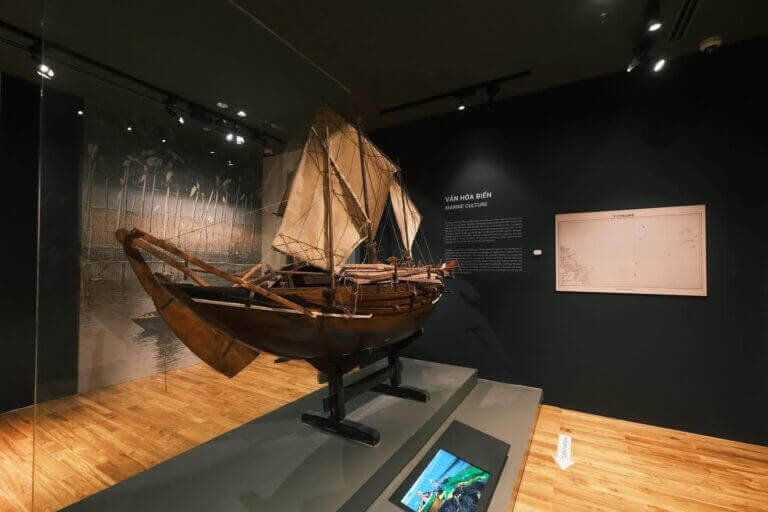
5. Transportation to Da Nang Museum
Located right in the city center, Da Nang Museum is very convenient for tourists to travel and visit. If you depart from My Khe beach, you just need to follow Pham Van Dong street, cross the Han River bridge and turn right onto Tran Phu street to get there. With a prime location, visitors can choose from many means of transport such as motorbikes, taxis, cars or even bicycles to easily access the museum.
6. Explore other museums in Da Nang
Not only Da Nang Museum, this beautiful coastal city also owns many other unique museums for tourists who love culture, art and history. Each museum has its own unique mark, promising to bring interesting sightseeing experiences:
- Da Nang 3D Museum: Lot C2-10 Tran Nhan Tong, Son Tra Ward
- Cham Sculpture Museum: No. 2, 2/9 Street, Hai Chau Ward
- Dong Dinh Museum: Suoi But, Hoang Sa Street, Son Tra Ward
- Da Nang Upside Down Museum: 44 Ho Xuan Huong, Ngu Hanh Son Ward
- Tre and Truc Museum: Sub-area 64, Le Van Luong Street, Son Tra Ward
- Buddhism Museum: 48 Su Van Hanh, Ngu Hanh Son Ward
- Ho Chi Minh Museum: No. 01 Duy Tan, Hai Chau Ward
- Hoang Sa Museum: Hoang Sa - Phan Ba Phien Intersection, Son Tra Ward
- Da Nang Fine Arts Museum: 74 Le Duan, Hai Chau Ward
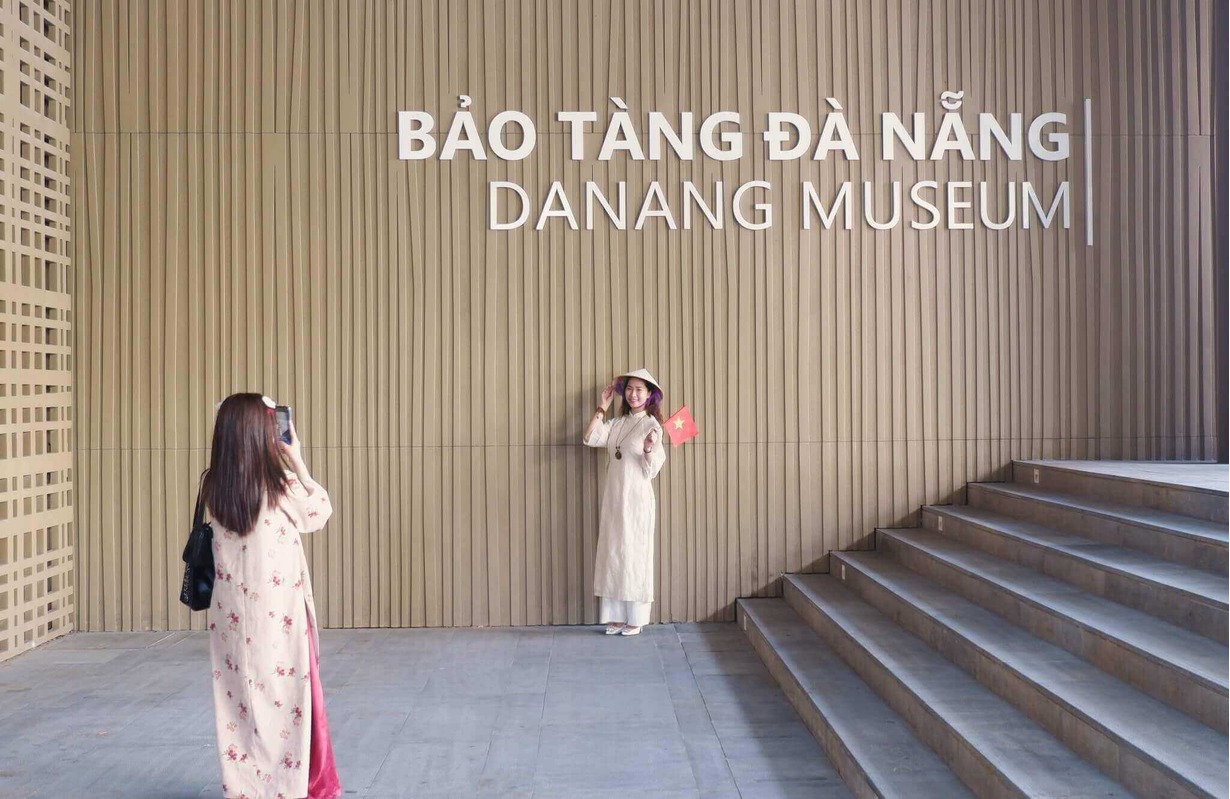
After visiting Da Nang Museum, don't forget to combine your trip with a visit to Dong Giang Heaven Gate - one of the most prominent destinations in the Central region.
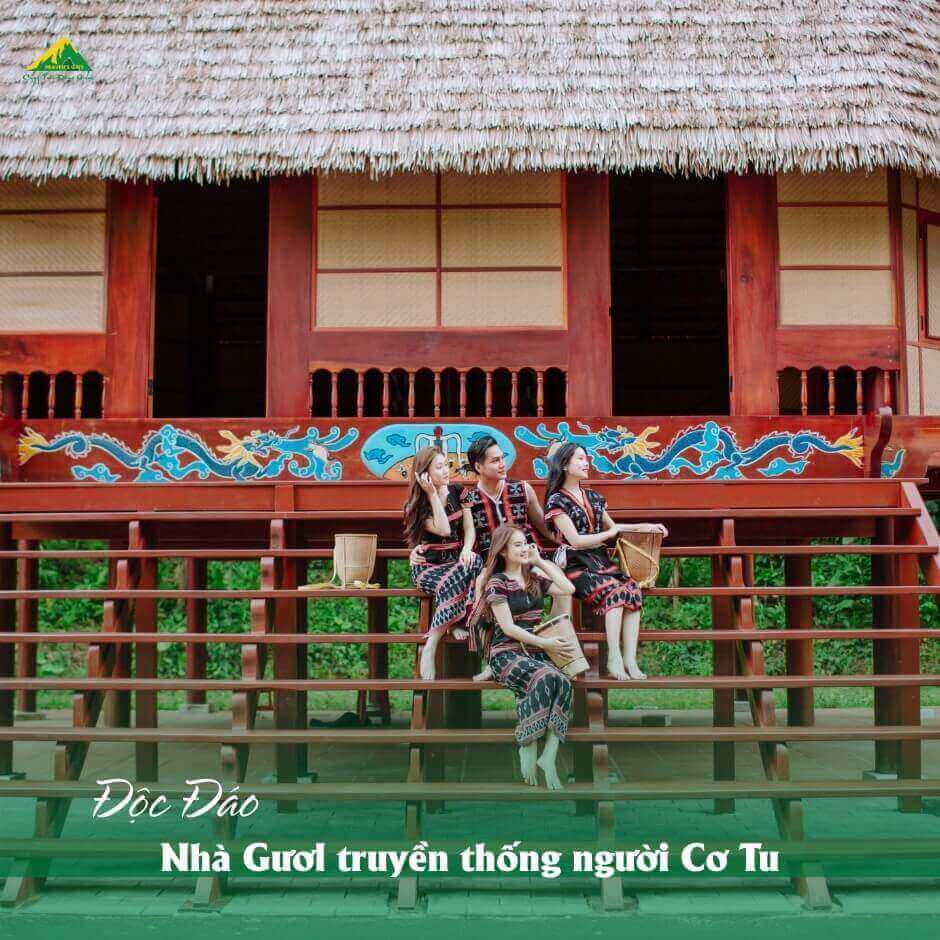
This place conquers visitors with its majestic mountain and forest scenery, its system of waterfalls and majestic caves, and unique architectural works such as the Ngoc Rong glass bridge. In particular, you also have the opportunity to learn about the unique culture of the Co Tu people, bringing a new and memorable experience.

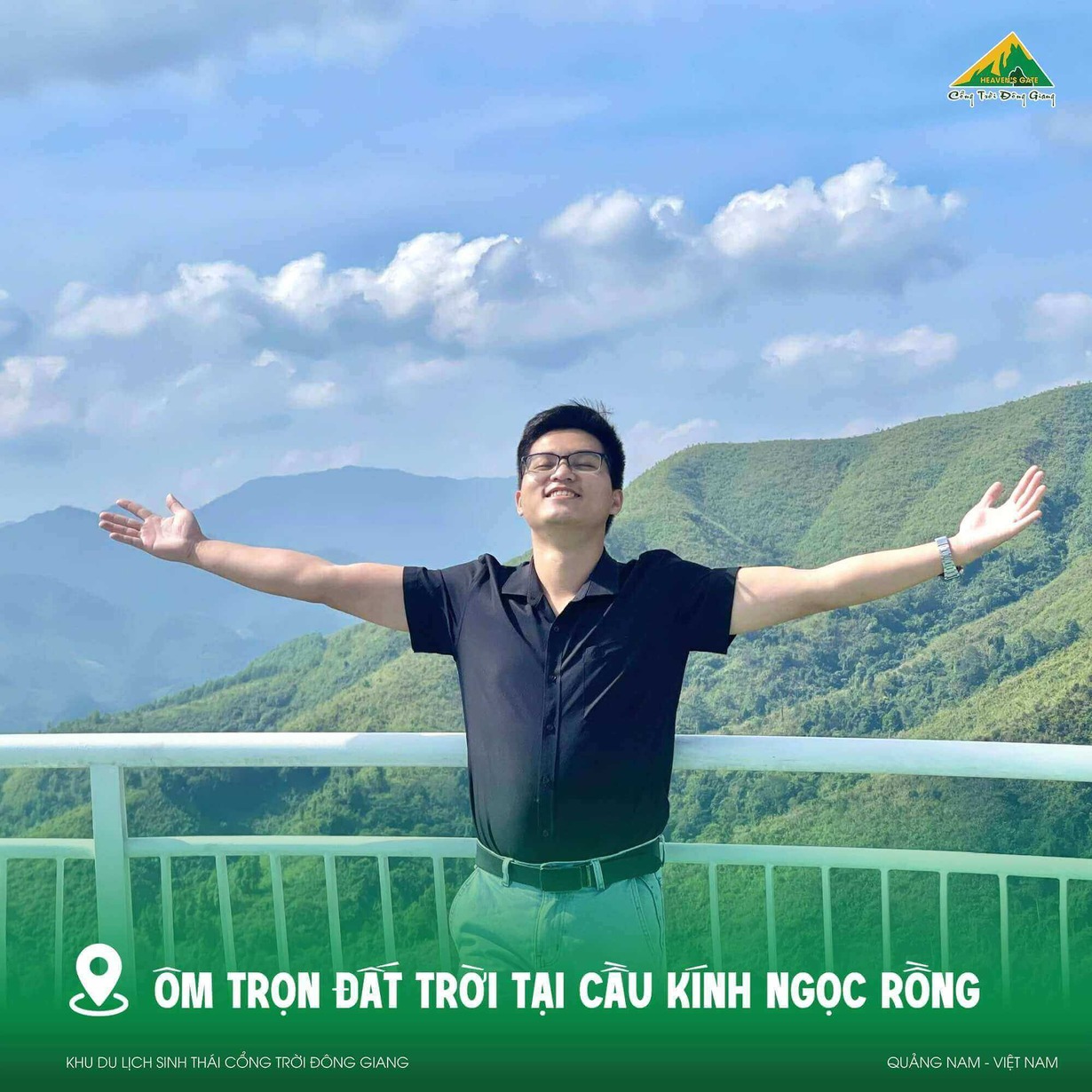
Through the above information, you must have had the answer to the question of what is in Da Nang Museum. With a creative display space and thousands of valuable cultural and historical artifacts, this place not only gives visitors an in-depth look at the development journey of the city on the Han River but is also an ideal destination to fully experience the identity of the "livable city" Da Nang.






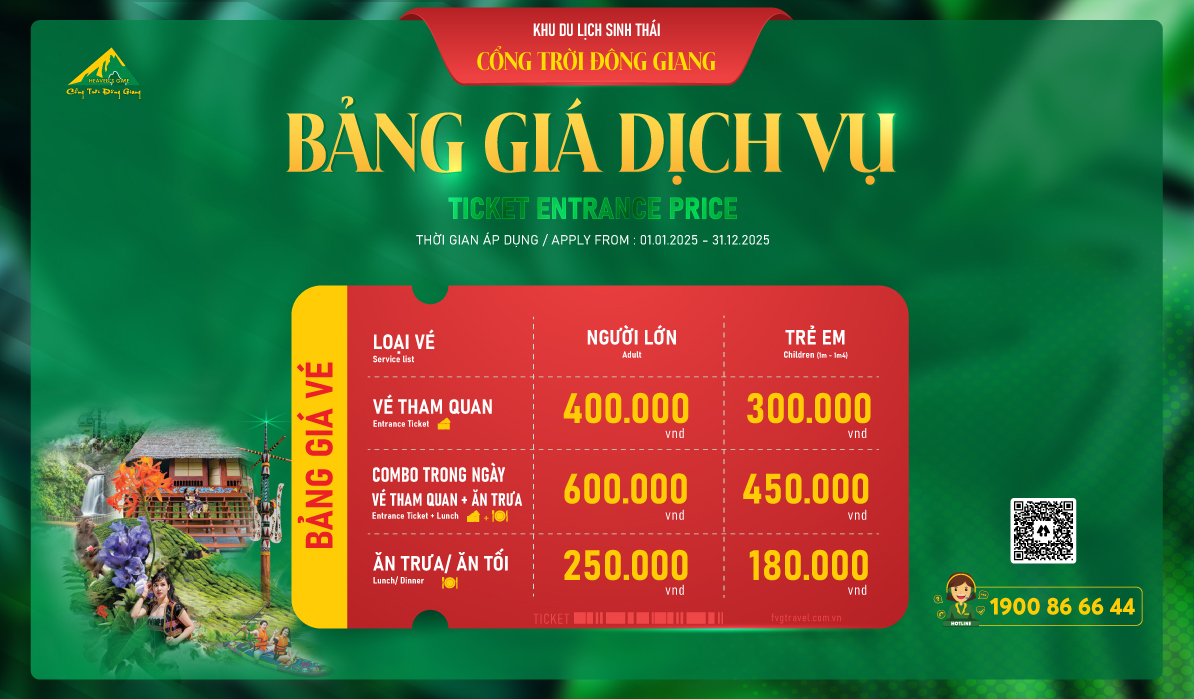
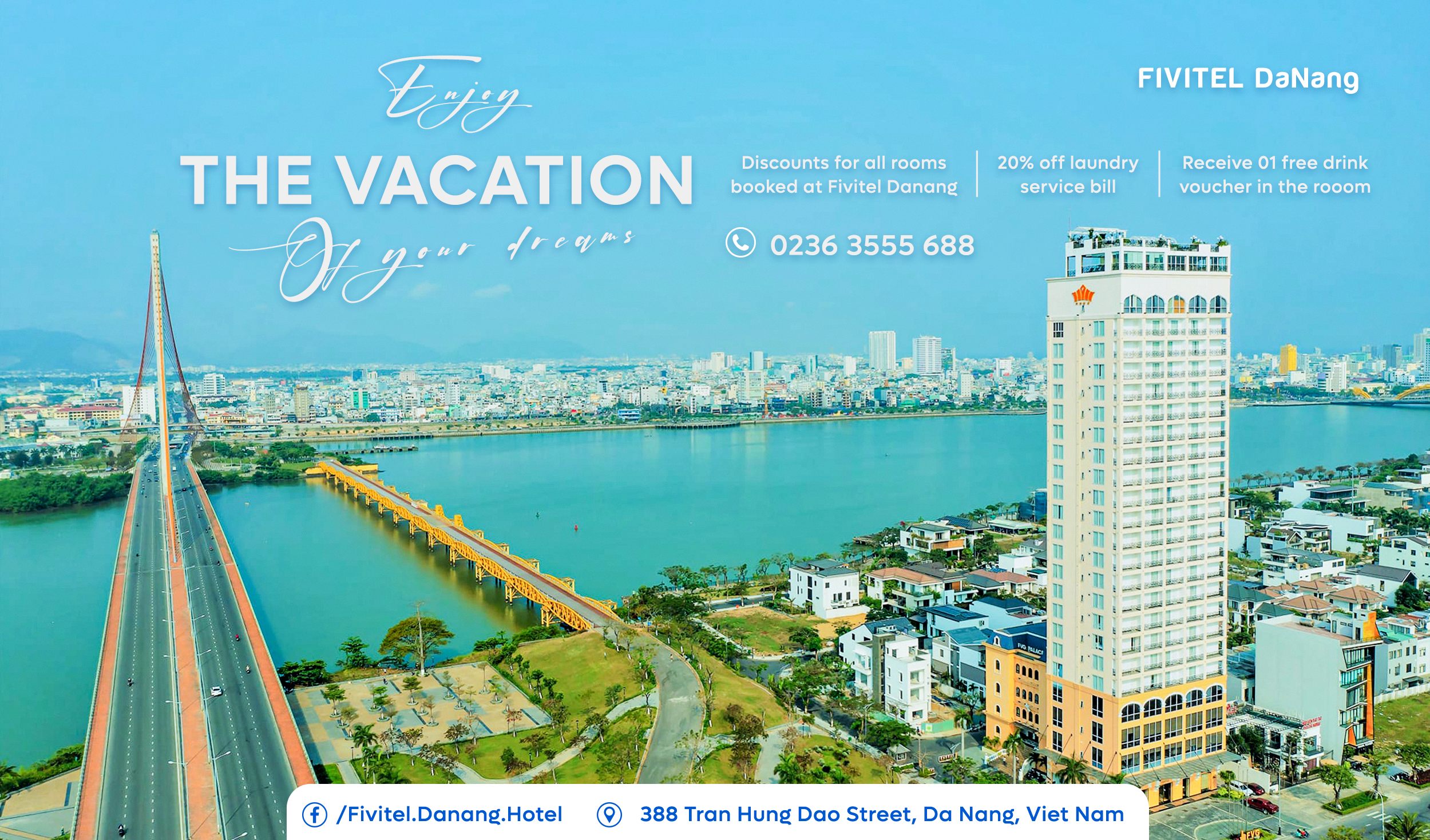
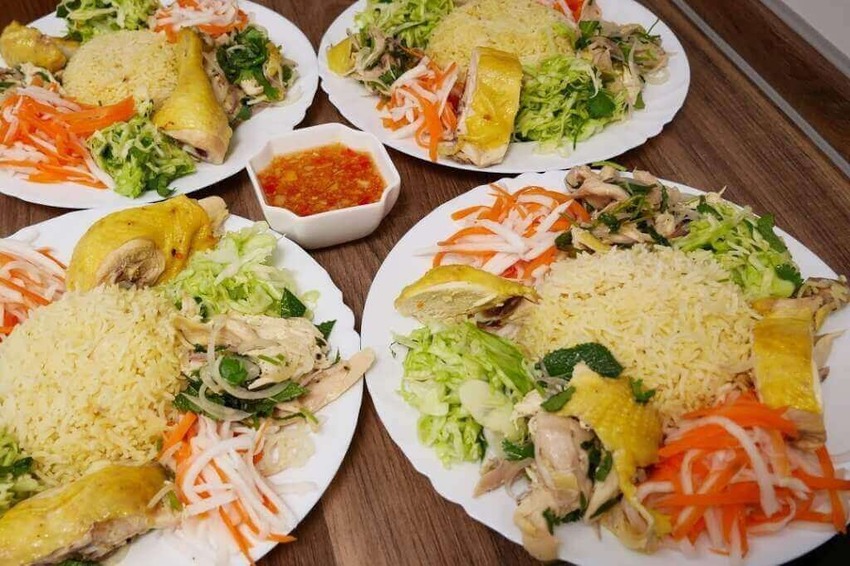
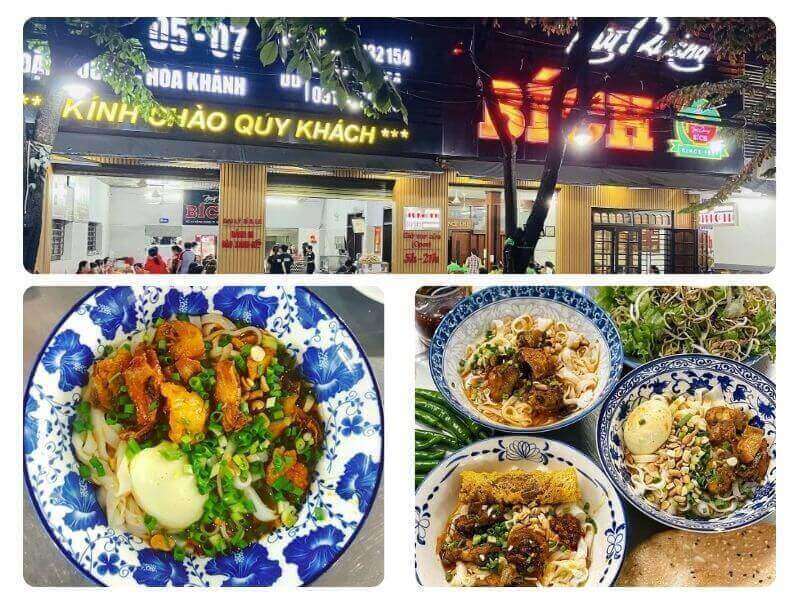







 Loading ...
Loading ...